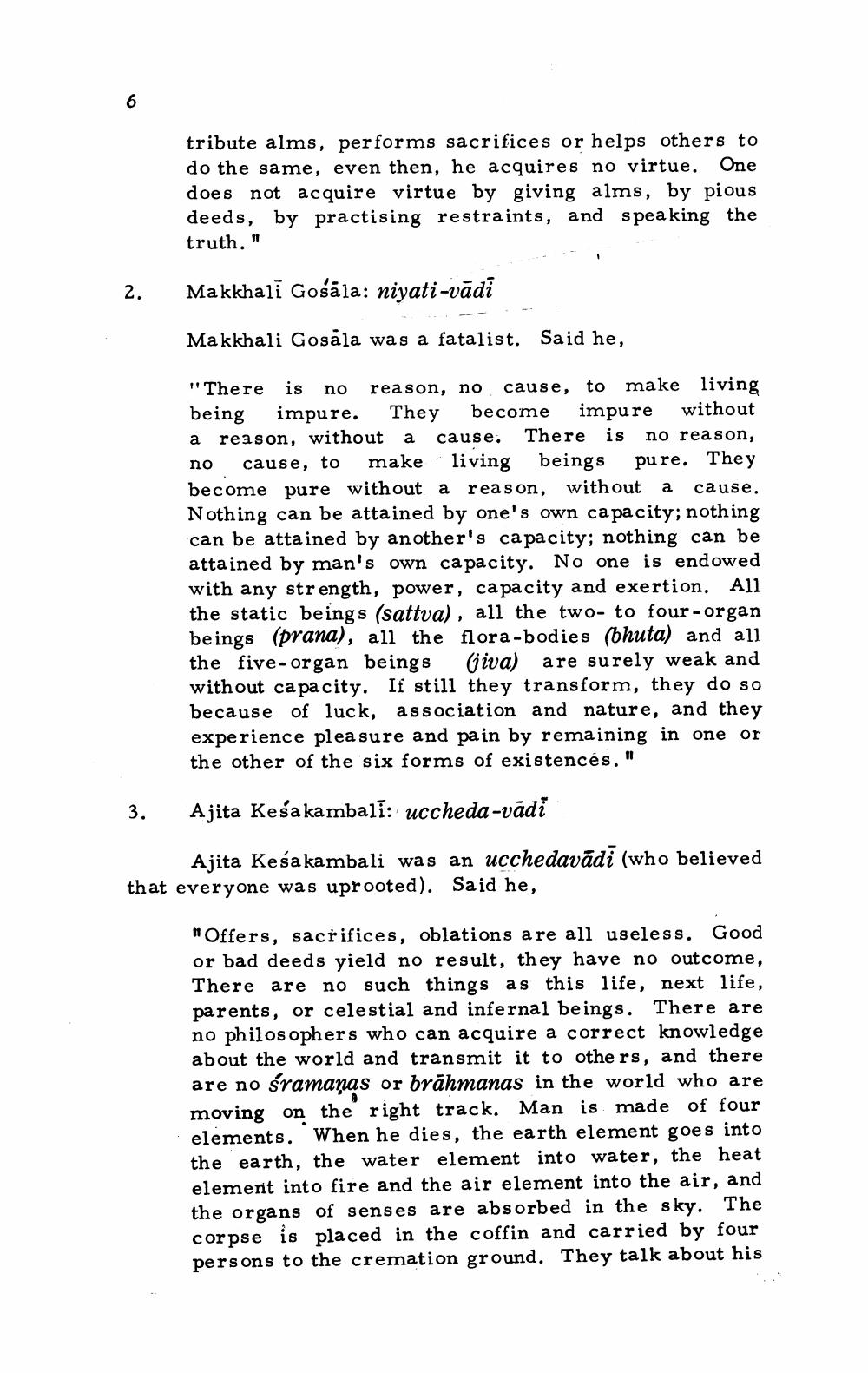________________
tribute alms, performs sacrifices or helps others to do the same, even then, he acquires no virtue. One does not acquire virtue by giving alms, by pious deeds, by practising restraints, and speaking the truth.
2.
Makkhali Gośála: niyati-vādi
Makkhali Gosāla was a fatalist. Said he,
"There is no reason, no cause, to make living being impure. They become impure without a reason, without a cause. There is no reason, no cause, to make living beings pure. They become pure without a reason, without a cause. Nothing can be attained by one's own capacity; nothing can be attained by another's capacity; nothing can be attained by man's own capacity. No one is endowed with any strength, power, capacity and exertion. All the static beings (sattva), all the two- to four-organ beings (prana), all the flora-bodies (bhuta) and all the five-organ beings (jiva) are surely weak and without capacity. If still they transform, they do so because of luck, association and nature, and they experience pleasure and pain by remaining in one or the other of the six forms of existencés. "
3.
Ajita Kesakamball: duccheda -oadi
Ajita Kesakambali was an ucchedavādī (who believed that everyone was uprooted). Said he,
"Offers, sacrifices, oblations are all useless. Good or bad deeds yield no result, they have no outcome, There are no such things as this life, next life, parents, or celestial and infernal beings. There are no philosophers who can acquire a correct knowledge about the world and transmit it to others, and there are no sramaņas or brāhmanas in the world who are moving on the right track. Man is made of four elements. When he dies, the earth element goes into the earth, the water element into water, the heat element into fire and the air element into the air, and the organs of senses are absorbed in the sky. The corpse is placed in the coffin and carried by four persons to the cremation ground. They talk about his




